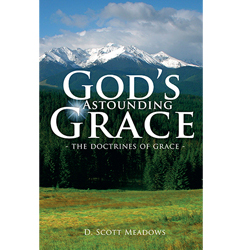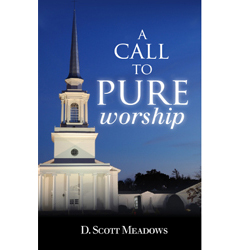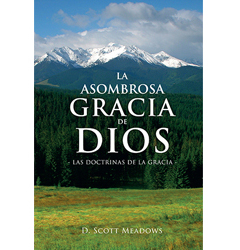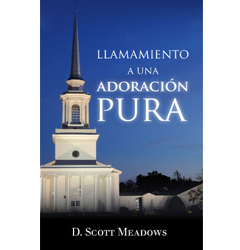

If My People: An Oft-Abused Bible Verse
D. Scott Meadows
If my people, which are called by my name, shall humble themselves, and pray, and seek my face, and turn from their wicked ways; then will I hear from heaven, and will forgive their sin, and will heal their land (2 Chron 7.14).
Many American Christians evidently think this verse fits well against a red, white, and blue background of stars and stripes forever. If you doubt me, search Google images.
Because of Independence Day on July 4, the topic is especially fitting. The identification of the USA as God’s chosen nation in the world today runs deep in our nation’s history. “American exceptionalism” breathes an air of national sanctity. Nearly 250 years ago, some pulpits in the American colonies turned very political and called for American independence from England, even if it came to a violent revolution against King George III. It was argued fiercely that this was God’s will, and an exercise of civic righteousness based on the Bible.
God alone knows how to judge all this and the people involved, but we can be sure from Scripture that America is not God’s new Israel, England was not Egypt in disguise, and King George was not “the Pharaoh of England” as Thomas Paine alleged in “Common Sense.”
Such American propaganda wreaks havoc upon the proper interpretation of 2 Chronicles 7:14, no more applicable to the USA than to any other earthly nation. It is a wonderful promise in Scripture to be sure, but to rescue it from popular misunderstanding, let us ask and answer three questions.
1) To whom is this promise made?
The LORD makes a promise in this verse to a specific group in the world, not to all the people of the world taken as a whole. It is plainly particular, not universal. Those in view are specified by the LORD as “my people, which are called by my name.” These are fairly described as God’s chosen people, distinguished from others in the world by His sovereign pleasure. Second Chronicles 7 rehearses the end of King Solomon’s dedication of the Jerusalem Temple with the Lord’s manifest blessing and an appearance to him by night. The Lord made this promise originally to Solomon with reference to the kingdom of Israel. In the larger Old Testament historical context, there is no doubt whatsoever that the nation of Israel was designated by these phrases (cf. 2 Chron 1.11; 6.5, 6; Num 6.27; Deut 28.9, 10).
What about today? Who are God’s chosen people, called by His name, the holy nation, the people redeemed for God’s own possession today? The New Testament makes it plain that it is the church of Jesus Christ. See how 1 Peter 2.9 quotes several OT passages that had referred to OT Israel (cf. Deut 7.6; 10.15; Exod 19.5, 6). Since Christ’s first advent, His church is the spiritual body composed of God’s elect from many nations, “the Israel of God” (Gal 6.16). Therefore, it is a lamentable abuse of 2 Chronicles 7.14 to displace Christ’s church by shoehorning the USA or any other earthly nation into the verse.
Nevertheless, we must recognize that this promise, in its specific form here, is properly restricted to OT Israel in their historic covenantal relationship with God. The NT Church is party to the New Covenant with different terms and blessings.
2) What are the terms of the blessing promised?
That the historic covenant with OT Israel was conditional readily appears from 2 Chronicles 7.14. Whether we consider the terms as fourfold description of repentance, or as a threefold description of “humbling themselves,” the blessing promised depended on the holy nation’s fulfilling its terms. Failure there not only forfeited the blessing but incurred severe divine judgment. Sadly, apostate Israel finally suffered the extremities of that judgment in the first century AD, one generation after Christ was crucified, when Jerusalem fell, the Temple was demolished, the old covenant form of worship was forcibly stopped, and the surviving Jews were scattered. Both Moses and Jesus warned of this cataclysmic end (Lev 26.38, 39; Luke 11.50, 51; 19.43, 44).
Whereas gospel preaching includes the promise of eternal life to those who repent and believe, the New Covenant guarantees repentance and faith as spiritual gifts to all its parties. There is no possibility that they, as members of the New Covenant, could fail to inherit New Covenant blessings. Jeremiah prophesied of this better covenant where forgiveness of sins was absolutely promised to all God’s people (Jer 31.31-34). Humbling ourselves and praying and seeking God’s face and turning from our wicked ways are not how Christians gain or maintain God’s favor, but rather, these things are the fruit of His gracious favor at work in us. These are identifying marks of those with new hearts and blessed destinies.
3) What is the blessing promised?
Finally, in the original historic context of OT Israel, the blessings in verse 14 amount to a reversal of the divine judgments mentioned in the previous verse: drought, locusts, and pestilence (2 Chron 7.13).
Yet 2 Chronicles 7.14 is endlessly abused to foster hope for the United States of America, contingent on our doing better spiritually, with the outcome of everything improving for everyone. “Heal their land” is taken metaphorically to mean curing our national and social ills. These notions stem, not from a responsible interpretation of this verse, but from dangerously unbiblical ideas known as “revivalism” and “the prosperity gospel” which are read into this verse.
When we consider that OT Israel’s temporal, physical, and national blessings are earthly emblems of the primarily spiritual blessings enjoyed by Christian believers in fellowship with the Lord and one another, we may see these greater blessings foreshadowed in the lesser. Keeping such biblical truths in mind will help us understand 2 Chronicles 7.14 properly and find our hope of ultimate salvation in Christ. Ω
All Rights Reserved. Used with permission. No part of this article may be used or reproduced in any manner whatsoever or translated without written permission.
The following books by D. Scott Meadows are available at Trinity Book Service and Cristianismo Histórico:
Ebook: A Call to Pure Worship | D. Scott Meadows




